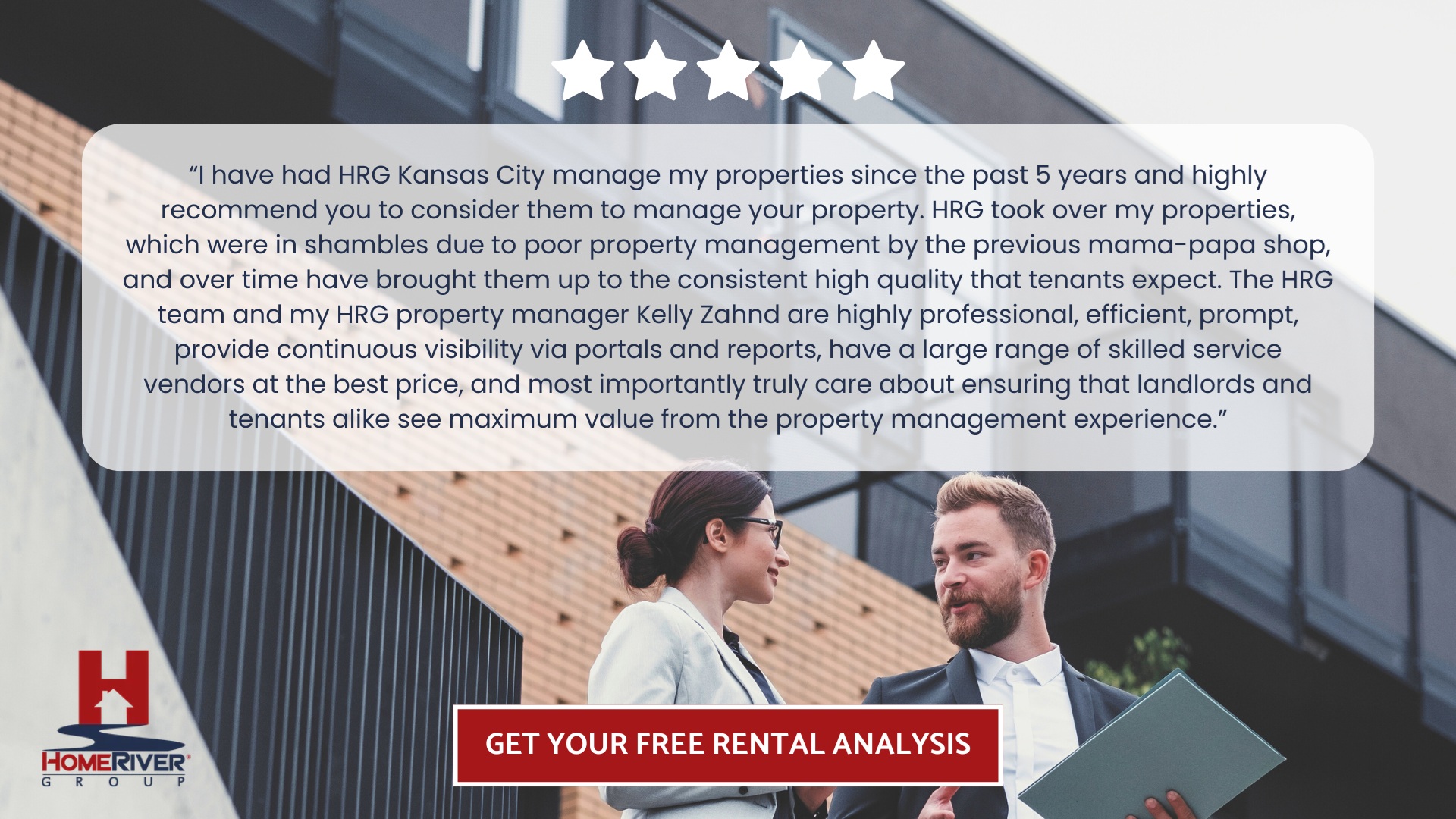
Understanding and implementing risk management strategies is necessary when it comes to protecting your home. If you're renting or owning a property, safeguarding your assets against potential threats such as natural disasters, theft, or unforeseen damages can save you time, money, and sleepless nights.
At HomeRiver Group, we know that your home is one of your most valuable investments, whether you live in it or rent it out. That’s why it’s necessary to take proactive measures that mitigate risks and maintain the value of your property. Our dedicated combination of local experience and national resources provides property owners and renters with the peace of mind of knowing their homes are safeguarded.
In this article, we will look at what is a risk management strategy you could use to protect your home, including practical steps like implementing security systems, addressing potential risks, and leveraging professional property management services to safeguard your property effectively.
Identifying Potential Risks To Your Home
Understanding potential risks to your home is a critical step in developing a robust risk management strategy. Risk factors can vary depending on location, property type, and current tenant activity, so a thorough assessment is essential.
Here are some common categories of risks to consider:
Natural Disasters: Floods, tornadoes, hurricanes, and earthquakes can cause significant property damage. Researching your area's weather patterns and natural disaster history can help you identify the most pressing threats to your home.
Property Damage: Even well-maintained homes can face structural problems, from plumbing leaks to foundation issues. Routine inspections can help detect early signs of damage and prevent it from escalating.
Security & Break-Ins: Homes that lack proper security measures may be higher targets for burglaries or vandalism. Doors, windows, and outdoor lighting should be inspected regularly to make sure they work well. Moreover, consider using advanced security technologies such as camera systems and smart locks.
Tenant-Related Risks (For Property Owners): If you’re renting out your property, tenants may unintentionally pose risks through negligence or lack of experience. Setting clear lease terms, performing background checks, and providing education on property care can mitigate these risks.
Regulatory Compliance Risks: Federal, state, and local housing laws often evolve, and non-compliance can result in liability. Staying informed of these changes or partnering with a professional property management company like HomeRiver Group verifies compliance.
Identifying these risks protects your property and safeguards its long-term value. Taking preemptive steps and assessing vulnerabilities allows you to act proactively instead of reacting to emergencies as they arise.
Financial Strategies For Home Risk Management
Financial preparedness plays a pivotal part in your risk management strategy when safeguarding your home. At HomeRiver Group, we understand the importance of proactive measures to protect your property, whether you’re a homeowner or a landlord managing multiple properties.
Below are indispensable financial strategies worth your consideration:
Invest In Adequate Insurance Coverage
One of the most important steps in home risk management is obtaining the right insurance policy. Homeowner’s or landlord insurance protects against unexpected events like natural disasters, theft, or accidents. Review your policy thoroughly to confirm that it covers all potential risks specific to your property’s location and structure.
Establish An Emergency Reserve Fund
An emergency fund is a cushion for unplanned repairs or maintenance issues like roof damage or a burst pipe. This reserve should cover at least six months of key property expenses, including mortgage payments, utilities, and taxes.
Conduct Routine Maintenance To Avoid Costly Repairs
Proactive maintenance is practical and cost-effective in the long run. Regular inspections and upkeep can reduce the risk of major financial setbacks caused by structural or system malfunctions. Tracking maintenance schedules is simpler with the help of property management software or a trusted management partner like HomeRiver Group. Additionally, understanding how to deduct your own labor on a rental property can further optimize your maintenance expenses and boost overall returns.
Implement Tenant Screening Processes
For property owners, rigorous tenant screening reduces the financial risks of late payments or tenant-caused damage. We provide professional leasing services that include thorough background checks, making certain that you secure reliable, long-term tenants who can uphold lease agreements and property care standards.
Explore Tax Benefits And Deductions
Owning a home or rental property opens up opportunities for tax benefits. For landlords, this can include deductions for maintenance costs, property insurance, and depreciation. Consulting with a tax professional makes sure that you maximize savings while complying with local regulations. Accurately calculating prorated rent guarantees fair income reporting and aligns with tax requirements, helping you manage finances effectively.
Benefits Of Professional Property Management Services
Professional property management services can be valuable for protecting your home and managing its risks. We help property owners manage the complications of homeownership by combining local market experience with the strength of a national network.
Here’s how professional property management services can enhance your risk management strategy:
Routine maintenance is key to preventing small issues from escalating into costly repairs. Professional property managers can conduct regular inspections, schedule necessary maintenance, and track repairs to make certain that your home remains in excellent condition. This level of oversight reduces the risk of unseen damage that could impact your property’s value over time.
Finding reliable tenants is integral to protecting your investment if you're renting out your home. Professional property managers use thorough tenant screening processes that include background checks, credit evaluations, and rental history verifications. Confirming your tenants are trustworthy reduces the risk of property damage and unpaid rent.
Understanding housing regulations and safety codes can be challenging. Professional property managers stay updated on local, state, and federal guidelines to verify your property complies with all legal requirements. This lowers your liability risk and protects your property from potential legal disputes.
With dedicated experience in asset management, companies like our professionals develop comprehensive risk management strategies tailored to your property. From addressing potential liability issues to implementing preventive measures, skilled property managers focus on minimizing risks that could compromise your asset.
As the premier national property management company, we offer centralized operations and in-depth local market knowledge. This dual approach makes sure your property is managed with personalized care and a broader understanding of market trends, providing you with peace of mind and exceptional service.
The Cost-Benefit Analysis Of Home Security Investments
When considering a comprehensive risk management strategy to protect your home, evaluating the costs and potential benefits of home security investments is crucial. Implementing security measures—from advanced alarm systems to reinforced doors and windows—can represent a financial commitment, but the long-term rewards often outweigh the initial expense.
Financial Savings And Value Preservation
One of the primary advantages of investing in home security is the reduction of potential losses from theft, property damage, or vandalism. A reliable home security system can deter criminals, minimizing the likelihood of expensive repairs or replacing stolen items. Also, many homeowners and renters find that their insurance providers offer discounted premiums when robust security measures are in place, creating another opportunity for financial savings.
Enhanced Peace Of Mind
While tangible financial savings are important, the peace of mind that comes with knowing your home is protected is invaluable. Advanced home security technology, such as surveillance cameras and smart locks, allows homeowners and renters to monitor their properties remotely. This provides enhanced confidence, even if you are in another city or at work for the day.
Increased Property Value
For those looking to maximize their real estate investments, security upgrades can also enhance a home's marketability. Buyers and renters often prioritize properties equipped with modern security features, as they see direct value in reduced risk and increased safety. By proactively investing in these improvements, you can position yourself to attract higher-quality tenants or secure better offers if you decide to sell.
Home Safety Tips For Renters And Buyers
If you are purchasing or renting your property, safeguarding your home is vital. A proactive approach to home safety ensures that your property, belongings, and loved ones are protected. At HomeRiver Group, we believe in equipping our clients with practical knowledge to protect their investments and create a safe living environment.
Here are some fundamental home safety tips tailored for both renters and buyers:
Install A Security System
A professionally monitored security system can deter intruders and alert authorities in case of a break-in. Many systems today also offer smart home features, such as video doorbells and motion-sensing cameras, allowing you to monitor your property in real-time. This is an excellent solution for renters and buyers looking to add an extra layer of security.
Inspect And Maintain Locks
Check that all locks on doors and accessible windows are in good condition. Renters should confirm with their property manager that deadbolts are installed on exterior doors, while buyers may want to invest in upgrading to smart locks for added convenience and security.
Conduct Fire Safety Checks
Confirm your home has fully functioning smoke detectors and fire extinguishers. Buyers should schedule regular inspections for older systems, while renters should confirm that their property manager maintains these devices as part of routine maintenance.
Secure Outdoor Spaces
For buyers with yards or renters with patios, provide secure outdoor spaces. Install proper lighting in dimly lit areas and invest in durable fences or gates. Thieves are often discouraged by well-lit and visibly secure properties.
Understand Your Insurance Coverage
Both renters and buyers should have appropriate insurance coverage to safeguard against theft, natural disasters, and accidents. Renters' and homeowners' insurance provides financial protection for personal belongings and liability claims—be sure to review policies to understand what is covered.
Perform Routine Inspections
Buyers should schedule routine maintenance to check for vulnerabilities, such as structural damage or appliance issues, that could pose safety risks. Renters should promptly report any maintenance concerns to their property management company to guarantee problems are addressed on time.
Final Thoughts
Implementing a risk management strategy for your home is a way to safeguard your investment and a proactive measure to provide peace of mind. By identifying potential threats, evaluating their impact, and taking preventative measures, you are laying the groundwork for sustained security and well-being. Strategic planning is critical, whether it means upgrading your home security system, acquiring comprehensive insurance, or performing regular maintenance checks.
At HomeRiver Group, we understand the importance of protecting your property and assets. Our experience in property management, coupled with a local and national presence, confirms that homeowners and renters have access to unparalleled guidance and support. By entrusting your property with HomeRiver Group, you can leverage our experience to bolster your home’s longevity, safety, and value.
Remember, risk management is an ongoing process, not a one-time checklist. Staying ahead of potential issues can save you time, money, and stress. So, take that first step today—evaluate your risk factors and craft a strategy to protect your home and those living there.
Read also:
Lease Enforcement: Why Should You Outsource Your Property Management?
What Are Some Ways That Someone Can Save Money On Their Rent? Practical Tips
What Is Prorated Rent? A Simple Explanation For Landlords And Tenants
Frequently Asked Questions About A Risk Management Strategy You Could Use To Protect Your Home
What is a risk management strategy for home protection?
A risk management strategy identifies potential risks, assesses their impact, and implements physical upgrades, insurance policies, and emergency plans to protect your home from damage, theft, or loss.
What steps can I take to mitigate natural disaster damage to my house?
Reinforce structures with storm shutters and secure roofs. Maintain drainage, seal water entry points, and update insurance to cover disasters like floods or earthquakes. Keep an emergency kit with necessities for added preparedness.
How should I create a fire escape plan for my home?
Map at least two escape routes per room, practice them, and make sure working smoke detectors, fire extinguishers, and emergency ladders are in place. Regular drills help household members stay prepared for emergencies.
What insurance policies are indispensable for homeowners?
Standard homeowners insurance covers fire, theft, and some natural disasters. Add flood, earthquake, or liability coverage for protection against excluded events, verifying comprehensive protection for your property and belongings.
How can smart home technology improve home security?
Smart devices like motion-detecting cameras, smart locks, and remote alarm systems offer real-time alerts and proactive solutions for risks like break-ins, smoke, or carbon monoxide, enhancing your home’s overall security.
What landscaping features can enhance home safety?
To deter intruders, use thorny shrubs under windows, install good lighting, and keep hedges trimmed. Proper grading and drainage prevent water damage, while visible landscaping eliminates hiding spots around the home.
How does a home inventory assist in risk management?
A home inventory documents belongings with photos, receipts, and descriptions, making insurance claims easier after a loss. Accurate records ensure proper compensation for stolen or damaged property.
How can I reduce the risk of burglary at my home?
Install durable locks, motion-activated lights, and cameras. Use timed lights when away to appear occupied. Join a neighborhood watch program for community-based safety measures and added deterrence.










